Enjoy this reimagined ceremony turned documentary, streaming now. It is hosted by Jury Chair Henry Louis Gates Jr. and features a visit to the hometowns of historian Eric Foner, poet Ilya Kaminsky, scholar Charles King and novelist Namwali Serpell. (Runtime: 56 minutes)
Category: Blog
Our slate of virtual programming during this year’s Cleveland Book Week means you have continued access, including our collaborations with the Cleveland International Film Festival, Western Reserve Historical Society, Global Cleveland, the City Club of Cleveland, and the Great Lakes African American Writers Conference. Dive into any programs you missed or rewatch your favorite sessions below.
2020 Anisfield-Wolf Book Award Documentary
Hosted by Jury Chair Henry Louis Gates Jr., this documentary features a visit to the hometowns of historian Eric Foner, poet Ilya Kaminsky, scholar Charles King and novelist Namwali Serpell.
CIFF Streams + ABWA
Viewers had the opportunity to stream free Cleveland International Film Festival documentaries, all with an Anisfield-Wolfian flavor. While the selections are no longer available to stream, the post-film conversations with the director and documentary subjects are. These conversations are hosted by Cleveland State University professor Eric Siler and feature captions and sign language interpreters.
Global Cleveland Sister Cities Conference
2020 Anisfield-Wolf Book Award winner for fiction Namwali Serpell and Baldwin-Wallace University Professor Chisomo Selemani discussed “The Old Drift” and Zambia at this international gathering.
Ilya Kaminsky, winner of the 2020 Anisfield-Wolf Book Award in poetry, discussed his art, his heritage, and his insight that disabilities can be “a political position for advocacy for us all,” in conversation with Alexandria M. Romanovich of Cuyahoga Community College.
Charles King in Conversation with Steven Pinker
A virtual conversation between Charles King, 2020 winner for nonfiction for “Gods of the Upper Air” and Anisfield-Wolf juror Steven Pinker, hosted by the Western Reserve Historical Society. Their discussion is preceded by a shorter one between Cleveland historians John Grabowski and Regennia Williams, who bring local context to King’s story of “how a circle of renegade anthropologists reinvented race, sex, and gender in the twentieth century.”
City Club of Cleveland: Eric Foner
2020 lifetime achievement award winner Eric Foner discussed his most recent book, “The Second Founding,” the Reconstruction Era, and the contemporary struggle for freedom and equality.
Great Lakes African American Writers Conference (GLAAW-C)
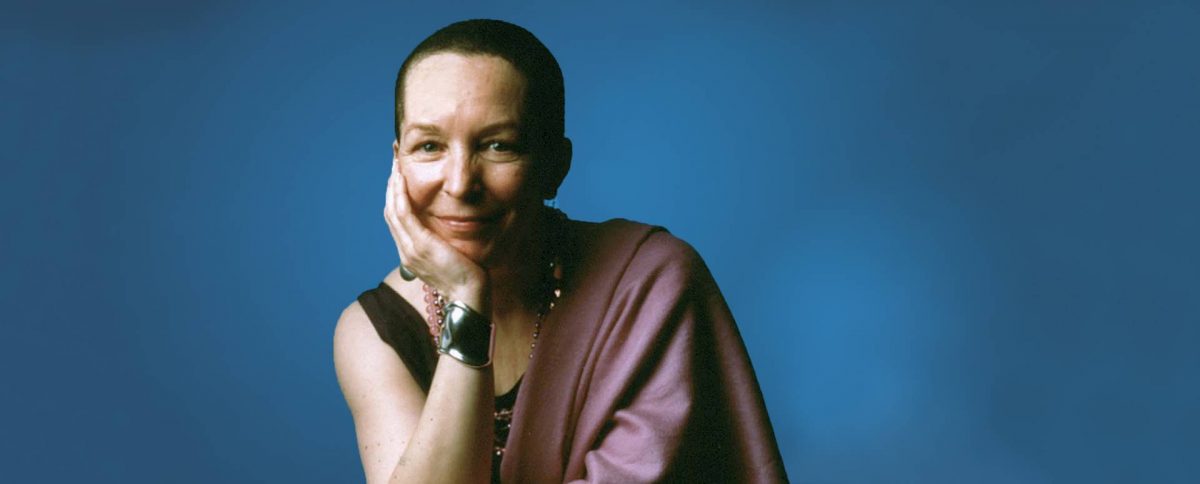
Award-winning novelist and playwright Pearl Cleage delivered the literary keynote for this writers’ conference, while noted agent Kima Jones from Los Angeles preceded with the professional keynote. Brandi Larsen, a former Penguin Random House executive, discussed engaging the big five publishers.
This conference can be viewed in its entirety on the GLAAWC Facebook page.
The fifth annual literary celebration returns this year from Sept. 29-Oct. 4, and will celebrate our 2020 Anisfield-Wolf Book Awards winners, while broadening our reach into film and podcasts. The week will be anchored by a one-hour documentary featuring a visit to the hometowns of historian Eric Foner, poet Ilya Kaminsky, scholar Charles King and novelist Namwali Serpell, replacing our annual awards ceremony.
Mark your calendar now for these engaging events and more as the calendar evolves with further details.
Tuesday, September 29-October 4
AW + CIFF Streams
Viewers will have the opportunity to stream free Cleveland International Film Festival documentaries, all with an Anisfield-Wolfian flavor. Coupled with each film will be an in-depth interview with the director, hosted by Cleveland State University professor Eric Siler.
Wednesday, September 30
Global Cleveland Sister Cities Conference
Our 2020 winner for poetry Ilya Kaminsky and Cuyahoga Community College Professor Alexandria Romanovich will bring “Deaf Republic” to this international gathering, discussing Kaminsky’s political poetry.
Thursday, October 1
Global Cleveland Sister Cities Conference
Our 2020 winner for fiction Namwali Serpell and Baldwin-Wallace Professor Chisomo Selemani will discuss “The Old Drift” and Zambia at this international gathering.
Anisfield-Wolf Book Awards 2020
Enjoy this reimagined ceremony turned documentary, at 8 p.m. on WVIZ/ideastream. Featuring Anisfield-Wolf jury chair Henry Louis Gates Jr. and each of our 2020 winners in their hometowns.
Friday, October 2
The City Club of Cleveland Forum: Eric Foner
Our 2020 lifetime achievement award winner Eric Foner will speak in a virtual City Club of Cleveland Friday Forum. He will discuss his most recent book, “The Second Founding,” the Reconstruction Era, and the contemporary struggle for freedom and equality.
Saturday, October 3
Great Lakes African American Writers Conference
In this multi-day writers’ conference, now in its third year, literary creatives from Cleveland, Northeast Ohio, and throughout the Great Lakes will gather to learn from and network with influential publishing industry professionals from hubs including New York, Chicago, and Los Angeles.
One of the most surprising things about “Good Trouble,” a new documentary on Georgia Congressman John Lewis’ six decades in the public spotlight, is how many jokes appear during the 96-minute runtime.
The levity that imbues Lewis, 80, as he gathers with staffers, chats with relatives and booms from a podium persists in someone who has endured some of the worst America has to offer.
The film makes his sacrifices clear — the civil rights movement was a brutal affair as Lewis put his body on the line time after time in nonviolent demonstrations from “Bloody Sunday” to the Freedom Rides and the March on Washington. The documentary’s title itself comes from Lewis’ belief that “good trouble, necessary trouble” is necessary to change the world.
Director Dawn Porter, whose film credits include “Bobby Kennedy for President” and “Spies of Mississippi,” yearned to hear more from the civil rights icon. She was intrigued by the breadth of his work, she said, and wondered: “How do you do justice to such a magnificent life?”
“We came to him…at a time when he was ready to tell his story,” she told NPR. “You know, I think he is – as he was approaching his 80th birthday, he’s always reflective, but I think he was particularly reflective. So it was a wonderful time for both of us to engage on this adventure together.”
A dizzying montage of Lewis stumping for a slew of progressive candidates in 2018’s midterm elections shows the stamina and grit of a man determined to help the country moves forward. “My greatest fear is that one day we may wake up and our democracy is gone,” he says quietly in one scene. “As long as I have breath in my body, I will do what I can.”
Anisfield-Wolf Book Awards jury chair Henry Louis Gates Jr makes an appearance, remarking that Lewis wept on his show, “Finding Your Roots,” as his team was able to uncover the activist’s great-great grandfather’s voting registration card from 1867.
“And by my calculation,” Gates told him, “no one in your family between him and you — because of what you did at Pettus Bridge and the Voting Rights Act — no one in your family line voted between him and you.”
Gates recalled that after Lewis composed himself, he simply replied: “I guess it’s in my DNA.”
Viewers witness the multi generational impact of Lewis in scenes of eager readers thrusting copies of “March,” his young adult graphic novel chronicling the movement, asking for autographs. (Lewis won an Anisfield-Wolf Book Award in 1999 for “Walking With the Wind: A Memoir of the Movement,” the precursor to “March.”)
Mostly, the film portrays Lewis as a gentle leader who has seen the country through some unbelievable lows. But it also reminds viewers that Lewis has moments of ferocity. The contentious 1986 Congressional election saw him face off with friend and fellow activist Julian Bond for a seat in Atlanta’s fifth district, a battle Lewis ultimately won.
Soundbites from those who know him best — his chief of staff, his siblings, fellow Congressional Black Caucus members — fill in the portrait, alongside the man himself. One voice is missing — Lillian Miles, Lewis’ wife of 44 years, who died in 2012. It is clear from those around him that Lewis is still working through his grief. As his sister noted, after her death, “He got quieter.”
The film wrapped in December, right before the news that the congressman had been diagnosed with stage 4 pancreatic cancer. An erroneous tweet from Congresswoman Alma Adams of North Carolina on July 11 reported on the congressman’s passing, leading to an outpouring of relief as his team refuted the rumors.
“Grateful that the great @repjohnlewis is still with us,” former national security adviser Susan Rice tweeted. “We need the wisdom and strength of this American hero and civil rights icon now more than ever.”
Indeed, the film elevates Lewis at a critical time — it was released July 3, in the midst of a national reckoning with race after the police killing of George Floyd. In a virtual townhall June 15 on the mental health impact of the uprisings on Black America, Lewis was delighted at the action he saw in the streets nationwide: “We must continue to be bold, brave, courageous, push and pull, ’til we redeem the soul of America and move closer to a community at peace with itself.”
Good Trouble is streaming now on multiple platforms and available in select theaters.
Join us October 1 to toast the 2020 Anisfield-Wolf Book Awards authors and their brilliant books.
WVIZ/PBS ideastream will produce, distribute and broadcast an original one hour of television highlighting the 85th Annual Anisfield-Wolf Book Awards. It will be hosted by Jury Chair Henry Louis Gates Jr. and feature a visit to the hometowns of historian Eric Foner, poet Ilya Kaminsky, scholar Charles King and novelist Namwali Serpell.
This destination viewing will let the Anisfield-Wolf community gather without fear of the pandemic. “We are grateful that the 85-year-old chain of celebrating Anisfield-Wolf Book Awards recipients will remain unbroken,” said Karen R. Long, manager of the awards. “Thanks to our longtime partners at ideastream, we are able to showcase the four new honorees for viewers everywhere, alongside the inimitable Henry Louis Gates Jr. And this television special will sit on the right side of the digital divide — accessible to the greatest number of people.”
Mark Rosenberger, chief content officer at ideastream, said the book awards “couldn’t be more relevant and important than they are now and it’s truly an honor to partner with them to share this program with an expanded audience. The environment has changed in so many ways and the awards and the conversations around them are more relevant than ever.”
More details will follow on the full schedule for Cleveland Book Week, arranged to keep all participants safe. In the meantime, dive into our 2020 award-winning books.
Four Anisfield-Wolf Book Award-winning authors — including two from our 2020 class — took home hardware from this year’s Los Angeles Times Book Prize. The annual springtime awards ceremony was postponed due to the coronavirus pandemic, so winners took to their cameras to deliver acceptance speeches, now posted on YouTube.
Namwali Serpell won the Art Seidenbaum Award for First Fiction, for her sprawling Zambian novel, “The Old Drift.” Hunkered down in her home, Serpell spoke on the need to continue to create. “These are dark times, yes, but that darkness, that void is a break from business as usual,” she remarked in her video. “A crack out of which maybe a revolution will emerge. It feels impossible to do anything except survive right now, but I say art is survival too. So I say, make art, paint it, record it, dance it, write it down.”
Ilya Kaminsky accepted the poetry prize for “Deaf Republic,” noting that poetry can offer comfort during turbulent times: “Poetry casts its spell on us, makes us want to return to its pages, to leave with its images, to memorize its lines, to whisper them to ourselves in the middle of the night, the last words we cling to when nothing suffices. In the middle of crisis I feel this more than ever.” Walter Mosley dedicated his prize, the Robert Kirsch Award for lifetime achievement, to the memory of his father, Leroy Mosley. Mosley, the author of more than 43 books, won the Anisfield-Wolf Book Award for fiction in 1998 for “Always Outnumbered, Always Outgunned.” Marlon James, a 2015 Anisfield-Wolf Book Award winner for “A Brief History of Seven Killings,” was honored with the Ray Bradbury Prize for Science Fiction, Fantasy & Speculative Fiction for his follow-up, “Black Leopard, Red Wolf.” Serpell and Kaminsky, both 2020 Anisfield-Wolf honorees, will be honored October 1 in a one-hour PBS television special, alongside Eric Foner (lifetime achievement) and Charles King (nonfiction). It will be hosted by Jury Chair Henry Louis Gates Jr. and feature a visit to the hometowns of each of this year’s winners.
Watch each of the winners on the Los Angeles Times YouTube channel.
“I was meant to be here,” 11-year-old Amia said as she twirled around the state capitol building in Sacramento, California.
On a field trip with roughly a dozen other members of the Radical Monarchs, a social justice troop based out of Oakland, California, Amia’s enthusiasm was captured in the riveting 2019 documentary, “We Are the Radical Monarchs.”
Directed by Emmy-nominated filmmaker Linda Goldstein Knowlton, it follows the troop’s co-founders Anayvette Martinez and Marilyn Hollinquest over the first three years as they work to build curriculum, raise funds and add additional chapters.
The troop’s origin was personal to Martinez, whose 10-year-old daughter Lupita came to her in fifth grade with a desire to join Girl Scouts. A community organizer and activist, Martinez hesitated.
“I wanted her to have an experience where she was a part of a troop that centered her identity as a girl of color,” Martinez said in the film. “It wasn’t a week of specialization but ‘you are at the center of this conversation.’”
Martinez approached her friend Hollinquest, an Oakland-based teacher and activist, about creating their own group. Launched in December 2014, the Radical Monarchs are geared toward young girls in third through fifth grades.
Goldstein Knowlton, 55, stumbled upon the Monarchs in January 2015 after reading about the founders’ efforts in The Guardian. The Chicago-born filmmaker had directed and produced other features about young girls and sisterhood, mostly notably 2005’s “Somewhere Between,” and the genesis of the Radical Monarchs struck a chord.
“‘Radical’ and ‘girl groups’ — those words usually aren’t together,” she said. “Just from [Martinez and Hollinquest’s] quotes they sounded like the most intentional people I’ve ever heard from…I’m always drawn to people who have a vision, who are striving, not knowing what the outcome is going to be.”
The director and her team spent the next three years capturing the Monarchs take flight — at monthly troop meetings where they discussed female movement leaders like Dolores Huerta and Yuri Kochiyama and at political protests such as the local Women’s March in 2017.
Their curriculum units are all “radical” and take a youth-centered, age-appropriate approach. The girls learn about the Black Lives Matter movement, parse and challenge societal beauty standards and discuss what it means to be an LGBT+ ally.
One particularly moving scene involves Monarchs learning at the feet of former Black Panther leader Cheryl Dawson. “It’s my desire to plant seeds in the hearts of those who will take them. So you will know as you grow up that part of your responsibility is to the people…You have big work ahead of you.” Later, during a group photo, Dawson needed a moment to compose herself, wiping tears away before take two.
“Making this movie through the cycle of the 2016 election and finishing the movie during this administration has felt like a consistent gift of hope,” Goldstein Knowlton said. “Marilyn always says, ‘We’re radical hope peddlers.’ I have massive gratitude for that. I feel like I can take a big deep breath.”
Watch “We Are the Radical Monarchs” during Cleveland International Film Festival’s reimagined CIFF Streams, where for $8 per film you can view the documentary from the comfort of your home. Tickets are $8 for a single film or $75 for an all-access pass. CIFF Streams ends April 28. This film was the Anisfield-Wolf Book Awards community match for 2020.
An innovative virtual exhibition at Case Western Reserve University selects and showcases new local responses to Anisfield-Wolf Book Awards writing. Sponsored by the Cleveland Humanities Collaborative, the exhibition features 10 new poems and essays responding to prompts from the Anisfield-Wolf award-winning canon.
Students and faculty from area universities created their own work based in Tracy K. Smith (“Wade in the Water”), Jesmyn Ward (“Sing, Unburied, Sing”), Tommy Orange (“There There”) and Martin Luther King Jr. (“Stride Toward Freedom”). Three students from Tri-C reflected on two pieces from the public art Inter|Urban project, influenced by Isabel Wilkerson (“The Warmth of Other Suns”) and Junot Diaz (“The Brief Wondrous Life of Oscar Wao”).
“The Anisfield-Wolf Book Awards have been a part of Cleveland’s literary culture for over 80 years,” said Kurt Koenigsberger, director for the collaborative. “It’s really been within the last decade that local colleges and universities, largely with support from the Cleveland Foundation, have begun to take up the challenge that the Anisfield-Wolf Award-winners pose for the work we do in our institutions.”
For the past two summers, the collaborative has sponsored seminars to help Northeast Ohio faculty, artists and activists integrate Anisfield-Wolf books into their classrooms and community projects. The idea for an exhibition that engaged students directly was an easy next step, Koenigsberger said: “Creating a space that broadened our institutions’ understanding, appreciation, and celebration of work on race and racism seemed important to the work of our Collaborative, and to our Northeast Ohio community more generally.”
Due to the coronavirus pandemic, plans for a physical exhibition in March quickly transitioned to a virtual presentation. Switching to an online format had at least one benefit — most of the participants provided audio of their work, adding flavor and personality to the written word.
“The move to invite participants to record their work was a result of our students’ deliberations,” Koenigsberger said. “They were very eager that the public could hear how the poems and essays sounded in the authors’ own voices.”
Read (or listen) to the selections at the Cleveland Humanities Collaborative website.
The Cleveland Foundation today unveiled the winners of its 85th Annual Anisfield-Wolf Book Awards. The 2020 recipients of the only national juried prize for literature that confronts racism and explores diversity are:
- Eric Foner, Lifetime Achievement
- Ilya Kaminsky, Deaf Republic, Poetry
- Charles King, Gods of the Upper Air, Nonfiction
- Namwali Serpell, The Old Drift, Fiction
“The new Anisfield-Wolf winners bring us fresh insights on race and diversity,” said Henry Louis Gates Jr. who chairs the jury. “This year, we honor a brilliant, breakout novel that centers Zambia, a book of political poetry 15 years in the making and a riveting history documenting a revolution in Western thought. All is capped by the lifetime achievement of Eric Foner, who has remade our understanding of the Civil War and especially its aftermath.”
Dr. Gates directs the Hutchins Center for African and African-American Research at Harvard University, where he is also the Alphonse Fletcher University Professor. Joining him in selecting the winners each year are poet Rita Dove, novelist Joyce Carol Oates, psychologist Steven Pinker and historian Simon Schama.
The Anisfield-Wolf winners will be honored October 1 in the Connor Palace Theatre in Cleveland, hosted by the Cleveland Foundation and emceed by Jury Chair Gates. The ceremony will be part of the fifth annual Cleveland Book Week slated for Sept. 27-Oct. 4.
Karen R. Long, manager of the book awards at the Cleveland Foundation, noted the prescience of philanthropist Edith Anisfield Wolf in founding the prize in 1935. “She understood that the best books are fuel to civic justice, as true now as it was during the Great Depression,” Long said. “We are proud to add the 2020 winners to this vital canon. These new books explore human diversity in riveting style, putting the lie to racism and ableism. Reading them knits us closer together in time when we must be apart.”
About the 2020 Winners
Lifetime Achievement
Eric Foner is a public intellectual who stands among the most important American historians of the past half century. He is the DeWitt Clinton Professor Emeritus of History at Columbia University and only the second person to lead all three major professional organizations in his field: the Organization of American Historians, the American Historical Association and the Society of American Historians. “Eric Foner is the dean of Reconstruction historians, and is one of the most generous, and genuinely passionate, professors of his generation,” said Dr. Gates. “As a scholar and writer, his footprint is vast.” Three of his books are considered canonical: “Free Soil, Free Labor, Free Men;” “Reconstruction: America’s Unfinished Revolution, 1863-1877″ and “The Fiery Trial: Abraham Lincoln and American Slavery.” This last book won a Pulitzer, a Bancroft and a Lincoln prize; Foner is equally proud of his numerous teaching awards. He retired from the classroom in 2018, continuing to write and lecture. Foner, 77, lives in New York City and in Connecticut with his wife, Lynn Garafola, a dance historian.
Poetry
Ilya Kaminsky is a celebrated poet, editor and translator whose first book, “Dancing in Odessa,” was published in more than 20 languages. He holds the Bourne Chair in Poetry at the Georgia Institute of Technology. Born in Odessa in 1977, Ilya’s mumps were misdiagnosed by a Soviet doctor who thought the four-year-old had a cold. The mistake left the poet hard-of-hearing. Amid rising antisemitism, Kaminsky’s family won political asylum from the United States in 1993 and resettled in Rochester, N.Y., where he was fitted with hearing aids. Kaminsky, adept in Russian, Ukranian and English poetry, became a lawyer first. When “Deaf Republic” arrived, the BBC named Kaminsky “one of the 12 artists that changed the world in 2019.” Anisfield-Wolf Juror Rita Dove said the book haunted her, “a parable that comes to life and refuses to die.” It describes an unnamed country whose citizens can no longer hear one another, set amid political unrest. The book, which contains pictograms of sign language words, became a finalist for the National Book Award. Kaminsky lives with his wife, the poet Katie Farris, in Atlanta.
Nonfiction
Charles King is the author of seven nonfiction books, including “Midnight at the Pera Palace” and “Odessa,” which won the National Jewish Book Award in 2011. A professor of international affairs and government relations at Georgetown University, King focuses on nationalism, ethnic politics, the transition from authoritarianism and the relationship between history and the social sciences. It is this last category that animates “Gods of the Upper Air,” a history of five anthropologists who upended many of the racist and sexist verities commonplace a century ago. The title derives from a Zora Neale Hurston phrase. She was among the circle of pioneering social scientists. Under the leadership of Franz Boas they fomented, Anisfield-Wolf Juror Steven Pinker said, “nothing less than one of the epochal changes in the history of Western thought.” He praised the book, also a finalist for a National Book Critics Circle award, as “gripping and beautifully written.” King, 52, lives in Washington, D.C., with his wife, the anthropologist and author Maggie Paxson.
Fiction
Namwali Serpell is a literary critic and fiction writer who spent 18 years working, episodically, on her debut novel, “The Old Drift.” She is a professor of English at the University of California, Berkeley. Born in the Zambian capital Lukasa in 1980, she grew up near its university and in Hull, England and Baltimore. Serpell wrote the opening of “The Old Drift” while a senior at Yale University, and the section about the title settlement along the Zambezi River after she visited the site in 2013. The novel spools out from a fateful collision there in 1904 among a local busboy, an Italian hotelier and a British photographer that Serpell sets reverberating through three generations. The novel romps through Zambian language, politics, history, science and speculative fiction. The novel is “a phenomenal accomplishment, nothing less than a retelling/reimagining of the creation and ‘history’ of Zambia,” observed Anisfield-Wolf Juror Rita Dove. Historian Simon Schama, also a juror, called praised call the book “brave and extraordinarily well done.” Serpell lives in San Francisco, where she is working on a book about her love/hate relationship with the novel “American Psycho.”
We have cancelled the March 30 reading by Peter Ho Davies and announcement of our 2020 Anisfield-Wolf Book Awards winners, in keeping with the precautions at all Ohio libraries due to the coronavirus pandemic.
Please stay tuned for an online announcement March 30 of the new class of recipients.
We thank our partner, the Cuyahoga County Public Library, and all those who made plans to join us in person. We encourage you to mark your calendars for 6 p.m. Thursday October 1 at the Connor Palace Theater of Playhouse Square for the awards ceremony, which will anchor the fifth annual Cleveland Book Week, beginning September 27 and running through October 3.
Novelist Peter Ho Davies, who won the 2017 Anisfield-Wolf award for fiction, returns to Cleveland March 30 to announce our class of 2020 winners.
Davies will speak at the Parma-Snow branch of the Cuyahoga County Public Library at 7 p.m. to read from “The Fortunes,” his sprawling novel exploring American history through a Chinese American lens.
In four linked sections, Davies explores the California Gold Rush, actress Anna May Wong, the 1982 murder of Vincent Chin by a disgruntled Detroit autoworker and the contemporary adoption of a Chinese daughter by American parents. Anisfield-Wolf juror Joyce Carol Oates called it a “prophetic work, with passages here of surpassing beauty.”
Davies will end the program with the announcement of our 2020 winners, followed by a book signing. Books will be available to purchase on site.
The University of Michigan professor follows former winners Jericho Brown (2015, poetry) and Marlon James (2015, fiction), who returned to Cleveland in 2019 and 2018, respectively, to make the new winner announcement.
A mere dozen miles from the site where Toni Morrison was born Chloe Wofford in Lorain, Ohio, a day-long gathering will mark what would have been the novelist’s 89th birthday.
“In Celebration of Toni Morrison: A Gesture of Love and Reflection” will be live-streamed from 9 a.m. to 6 p.m. from the Oberlin College campus. Organizer Johnny Coleman, professor of Studio Art and Africana studies, began working on the event the day after Morrison died in August.
“This warrior artist had such a giant global impact and such an individual impact,” he said. “I think there are individuals dispersed all over this planet who have very direct relationships with the images that Ms. Morrison conjured on the page and with the narratives she called up.”
Organizers hope citizens will stop by the Irene and Alan Wurtzel Theater to give an excerpt reading, or record an audio tribute to underscore how Morrison’s work influenced their lives.
In September, Cleveland Book Week featured reflections from writers who followed Morrison into the Anisfield-Wolf canon — Walter Mosley, ’98; Marilyn Chin, ’15; Kevin Young, ’18; Brent Staples, ’95; and Jesmyn Ward, ’18.
“Morrison centered blackness, in ways unparalleled, though she was not alone in doing so,” Young stated. “She helped us see ourselves and free ourselves and remind us that as she put it, the function of freedom is to free someone else.”
Walter Mosley, who also praised Morrison in 2019’s “The Pieces I Am” documentary, spoke on his friend of more than 20 years: “Of all her acts in the world of literature, Morrison almost single-handedly raised Black America to an international platform without us losing our identity.”
Marilyn Chin recited her new poem, “Praise (For Toni Morrison),” ending with “Praise holy, holy Chloe/Who shall finally reclaim her name.” A framed copy of the poem will be installed in the newly remodeled Morrison room at the Lorain Public Library. It will mark her birthday by hosting a rededication ceremony at 2 p.m. featuring members of the Morrison/Wofford family.
Watch our full tribute below and find more information on Oberlin’s “Gesture of Love” celebration.
Marilyn Chin
Praise (For Toni Morrison)
Praise Sula, Praise Nell, Praise Sethe Praise Bride and her blue-black beauty Praise Valerian, Praise Sweetness, Praise Rain Praise Pecola, forgive Cholly May Milkman Dead find his wings Praise Medallion, Praise Shalimar, Praise Mercy Praise the blessed earth Lorraine Praise the gateless gate of eternity Praise the Great Mother’s legacy Praise holy, holy Chloe Who shall finally reclaim her name
Henry Louis Gates Jr. rarely speaks about one of his most publicized moments — the July 2009 arrest by Sgt. James Crowley at his Cambridge home, leading to the infamous “beer summit” at the Obama White House.
Now the multi-hyphenate — historian, TV host, executive producer, editor, Harvard professor and Anisfield-Wolf jury chair — reflects on that incident, some 11 years later, in a new interview with New York Times magazine.
“President Obama made an innocent comment that the arrest was stupid, which it was,” he told the publication. Then all of a sudden all these racists are beating up on him. My whole attitude was channeled through the desire to protect our first black president.”
Throughout the interview, Gates toggles from subject to subject, from myths of the slave trade to his thoughts on the remaining Democratic presidential candidates. (No official endorsement yet but he’s got his eye on Michael Bloomberg.)
A few highlights:
On his perspective of the beer summit” incident:
I thought that it would be hubristic and dishonest if I compared what happened to me to what happens to black people in the inner city….Well, that might be related to police excesses and abuses, but it’s a far end of the scale, and I was able to reverse what happened to me, unlike an Eric Garner.
On America’s responsibility for reparations:
I do believe that it’s impossible for any rational person not to understand the cost of 400 years of slavery and then another century of Jim Crow. We have to find ways to compensate for that cost. Affirmative action, to me, is a form of reparations. So is health care — Obamacare or a variant. And there’s reform of public education. One of the most radical things we could do to reform public-school education would be to equalize the amount of money spent per student in every school. That is never going to happen, but that would constitute a radical shift.
On the quiet objective of his PBS show, “Finding Your Roots”:
I’m trying to use the popularity of “Finding Your Roots” to get these political messages in there without being a scold. I am trying to deconstruct notions of racial purity. There is no racial purity. We are all diverse. Showing diversity is important to me politically and insofar as we can achieve that, our series has an educational value for the larger country, particularly at a time when we’re at Redemption [the period of white rollback of black progress following Reconstruction] redux.
Ten years after Edith Anisfield Wolf established the book prizes, Soviet troops advanced across southeastern Poland and liberated Auschwitz, the complex were 1.3 million were enslaved — and 1.1 million murdered — during the Second World War.
Did the prominent Jewish Clevelander with family in Austria ask herself in 1945, “In the face of such decimation, what good is a book award?”
Seventy-five years after the fact of Auschwitz was laid bare to the world, “attacking Jews has once again become socially acceptable in many countries – across the left-right ideological spectrum, and among groups that blame Jews for their grievances and oppression” writes Dr. Walter Reich, former director of the United States Holocaust Memorial Museum, in the Atlantic Monthly.
He attributes this resurgence to diminishing general knowledge of the Holocaust. “The horrifying knowledge of where anti-Semitism can lead,” he writes, “has been, in large measure, lost in a miasma of forgetting, ignorance, denial, confusion, appropriation, and obfuscation.”
In her classes at Case Western Reserve University, Dr. Lisa Nielson, an Anisfield-Wolf scholar, often teaches two writers in the canon: philosopher David Livingstone Smith and the Yiddish novelist Sholem Asch. 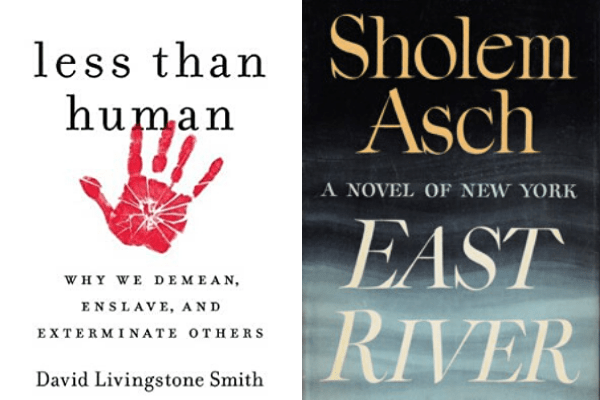
In 2012, Smith won his prize for “Less Than Human: Why We Demean, Enslave, and Exterminate Others” and Asch — a Polish-born immigrant to the United States — for his 1947 novel “East River.”
“Smith has some grim and important stuff to say about the Holocaust, and Sholem Asch is a great pairing,” Nielson writes. “Asch has a devastating short story about identity, dehumanization and survival called ‘Heil, Hitler!’ that is a powerful — if hard for some — choice to read.”
In “Less Than Human,” Smith writes, “For most readers of this book, the word genocide is probably synonymous with Auschwitz. The Holocaust was the paradigmatic twentieth-century genocide, and is also the most thoroughly documented one. These is an immense literature describing how Germans of the Third Reich thought of Jews, as well as Slavs and Gypsies, as less than human, portraying them as apes, pigs, rats, worms, bacilli, and other nonhuman creatures. And it is abundantly clear from this evidence that the Nazis did not intend the term subhuman to be taken metaphorically.”
“’One does not hunt rats with a revolver,’ quipped one SS expert, in a chilling allusion to the mass exterminations, ‘but with poison and gas.’”
Standing between the Nazis and the “degenerate Jew” propaganda was the fiction and plays of Asch. In 1933, Nazi students at more than 30 German universities pillaged libraries in search of titles they considered “un-German.” Among those thrown into the flames were the books of Sholem Asch.
Anisfield-Wolf recipient Zora Neale Hurston would have turned 129 years old January 7. To celebrate her birthday, the editors of ZORA, an online magazine eponymously named after the Harlem Renaissance writer and pioneering anthropologist, compiled the ZORA Canon, its definitive list of the best books written by African American women.
Novelist Kaitlyn Greenidge (“We Love You, Charlie Freeman”) writes that the editors decided to take up the task when they realized no one seemed to have published a comprehensive list of black women authors, a baffling fact considering the robust reading habits of black women.
Collectively, they took steps to remedy that omission. “Taken together, the works don’t just make up a novel canon,” Greenidge writes in the introduction. “They form a revealing mosaic of the black American experience during the time period.”
Anisfield-Wolf fiction winner Jesmyn Ward was one of the six panelists who selected the works, ranging from poetry to plays, nonfiction to short stories and novels. Alongside Ward was Malaika Adero, a former vice president and senior editor for Atria Books; Pulitzer Prize-winning critic Margo Jefferson and author of “Negroland;” Ayana Mathis, a professor and bestselling author of “The Twelve Tribes of Hattie;” Tressie McMillan Cottom, a sociologist and author of “Thick”; and Imani Perry, a professor of African American studies whose most recent book is “Breathe: A Letter to My Sons.”
The 100 works are divided into five sections, spanning 160 years of literature: “A Fight For Our Humanity” (1859-1900), “A Rebirth of the Arts” (1924-1953), “Civil Rights & Black Power” (1959-1975), and “The Strength of Self Worth” (1976-1999) and “A Radical Future” (2000-2010).
Browse the list and you’ll find Anisfield-Wolf winners peppered throughout: Toni Morrison appears four times (“Sula,” “Song of Solomon,” “Beloved,” and “A Mercy”) and Rita Dove gets a nod for 1986’s “Thomas and Beulah.” Sonia Sanchez, our 2019 lifetime achievement winner, is recognized twice for her 1970s poetry collections: “We a BaddDDD People” and “I’ve Been a Woman: New and Selected Poems.”
As ZORA senior editor Morgan Jerkins debuted the list on Twitter, she noted: “For those academics who are scratching their heads over how to make their syllabi more diverse, here you go. You have 100 books to choose from and they were chosen from the best of the best.”
And to cap the birthday off, Amistad Press is giving away free electronic copies of Hurston’s “Their Eyes Were Watching God.” Visit www.CelebratingZora.com for downloading instructions.
In the onslaught of titles published each year, friends of the Anisfield-Wolf Book Awards can deploy a powerful technique to sift the wheat from the chaff: Find the new work from those writers already in the canon. Here are some gems sitting atop the 2019 pile:

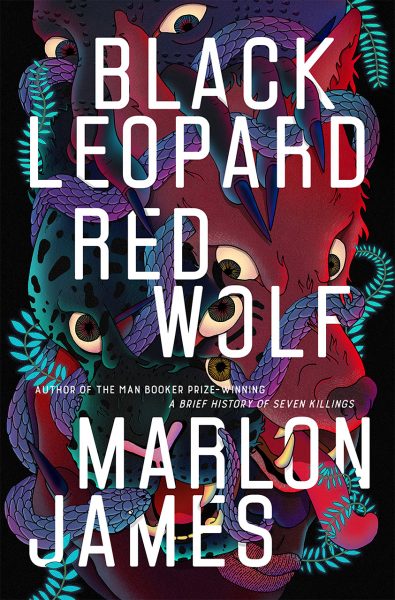
“Black Leopard Red Wolf” by Marlon James
The Jamaican American novelist most celebrated for “A Brief History of Seven Killings” goes genre. Actor Michael B. Jordan bought the film rights to this epic fueled by African mythology even before it published in February. The story — the first installment of a planned trilogy — spools out in beautiful sentences that coil around a hunter named Tracker. In nonlinear flashbacks, Tracker breaks his own rule of always working alone to find a disappeared boy, joining forces with a giant, a buffalo, a witch, a water goddess and a shape-shifting leopard. Following the child’s scent – Tracker “has a nose” – means trekking through forest, across rivers and through magical doors, beset by fantastical creatures. Tracker, we learn, is the red wolf of the title and the facts are murky. (“Truth changes shape as the crocodile eats away at the moon.”) This bloody quest-story is no escapism. As James told the New Yorker: “The African folktale is not your refuge from skepticism. It is not here to make things easy for you, to give you faith so you don’t have to think.”

“Everything Inside: Stories” by Edwidge Danticat
The author of “Clare of the Sea Light” and “Brother, I’m Dying” brought out in August her first short fiction collection in more than a decade. Known for precise, pitch-perfect sentences and a gift for juxtaposition, Danticat weaves eight Haiti-influenced stories of diaspora and longing. She pairs Cindy Jimenez-Vera’s insight — “being born is the first exile” — with Nikki Giovanni’s “We love because it’s the only true adventure” to frame the urgencies of quiet lives. One belongs to Elsie, a Miami home-health care worker, whose decency is no match to the manipulations of her ex-husband and former best friend. Another centers on a New York City teacher who is cheated of a final chance to meet her father before his late-life death. The last story, “Without Inspection,” covers 6.5 seconds as a construction worker falls toward oblivion. He realizes that “whatever he wanted he could have, except what he wanted most of all, which was not to die.”

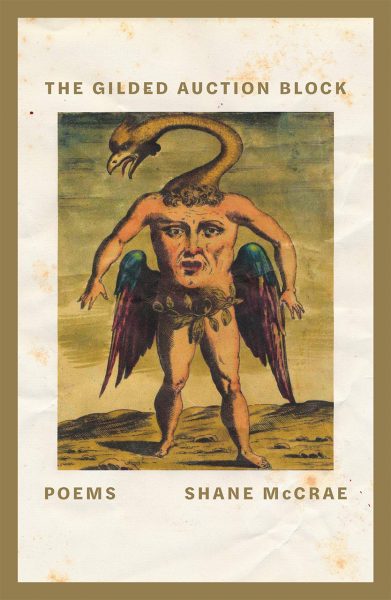
“The Gilded Auction Block” by Shane McCrae
Following his essential poetry collection “In the Language of My Captors,” McCrae continues his investigation of U.S. freedom and its contradictions. In 23 poems, McCrae addresses the present American moment, and in some pieces responds directly to Donald Trump. The first poem, “The President Visits the Storm” starts with an epigraph from the 45th chief executive: “What a crowd! What a turnout!” — proclaimed to victims of Hurricane Harvey. And McCrae considers how the country has turned out. A poem titled “Black Joe Arpaio” begins “America you wouldn’t pardon me.” In another, McCrae stands up the exact language Carrie Kinsey used in a 1903 letter to Theodore Roosevelt about her brother – wrongly sold into forced labor – and transforms it through ear and syntax into a searing work of art. The poet also circles back to his white supremacist grandmother in Texas “who loved me and hated everybody like me.” She and her black grandson create a knot that grief cannot untie. It is a privilege to read his reckonings now.
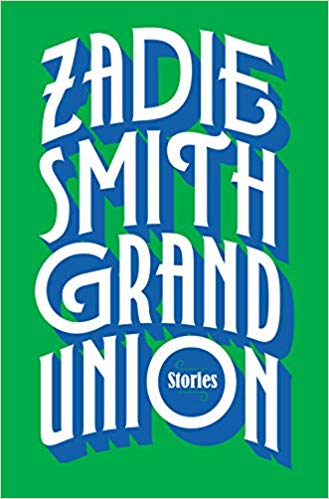
“Grand Union” by Zadie Smith
The outlandishly gifted British novelist of “White Teeth” and “On Beauty” published her first short story collection in October. In 19 tales, she wheels through a dizzying constellation of topics, tones and fonts, writing about the future and the past. A reader can enter anywhere, like her bravura “The Lazy River,” an endlessly rotating watery amusement for tourists in Spain. Elsewhere, the writer spills blood in London even as the jaunty “Escape from New York” rifts on the urban legend that Michael Jackson ferried Liz Taylor and Marlon Brando out of the smoking debris of 9/11 in a rental car. And the marvelous “Words and Music” mediates on peak musical experiences as lived by two disputatious sisters. A couple of stories are closer to fragments, but several seem destined to become classics. Smith begins and ends with two mother-daughter stories — the first bristles with alienation, the last, “Grand Union” with the transcendence of generations.
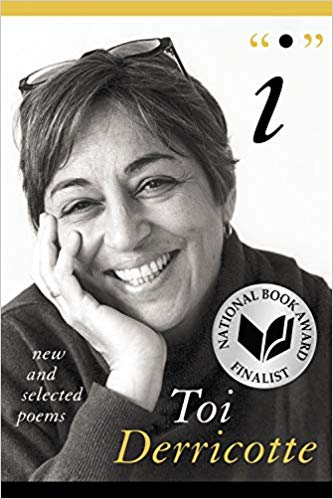
“I: New and Selected Poems” by Toi Derricotte
The Pittsburgh poet co-founded Cave Canem, whose motto is “a home for black poetry.” This collection serves as a profound home for 30 new pieces as well as those swept from five earlier books across a span of 50 years. The title “I” comes from Derricotte’s son and is perfect for a writer sometimes characterized as a confessional poet, one who has mined the self to grapple with gender, race, identity, sex and spirit. In “Tender” she writes: “The tenderest meat/comes from the houses/where you hear the least/squealing. The secret/is to give a little wine before killing.” The collection, dedicated in part to “the mother and fathers – Galway, Lucille, Ruth and Audre” gestures toward the poetic ancestry of Galway Kinnell, Lucille Clifton (another Anisfield-Wolf recipient), Ruth Stone and Audre Lorde. In her acknowledgements, Derricotte writes, “I am most grateful to the universe for the community of Cave Canem. We imagined a place in which black folks were safe to write the poems they needed to write.” And so she has.

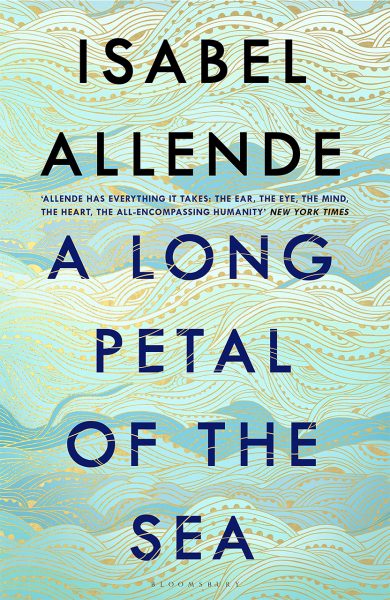
“A Long Petal of the Sea” by Isabel Allende
The beloved novelist, born in Peru, raised in Chile and now a resident of northern California, writes in her acknowledgements: “This book wrote itself, as if it had been dictated to me.” Indeed, this historical fiction contains unmistakable autobiographical notes. It begins with the Republicans loss of Spain and the marriage of convenience between fighters Victor Dalmau and Roser Bruguera in 1938. She is pregnant with the son of his slain brother and can only leave France aboard a ship for wounded fighters if she marries him. The ship sails to Chile and their bond of expediency begins a complicated family saga that crests with the catastrophic 1973 overthrow of the democratically-elected Chilean government, just as it radically altered the author’s life. Allende knows how to spin an engrossing story and to reward her readers with a savory and satisfying surprise for the 80-year-old Victor at the end.

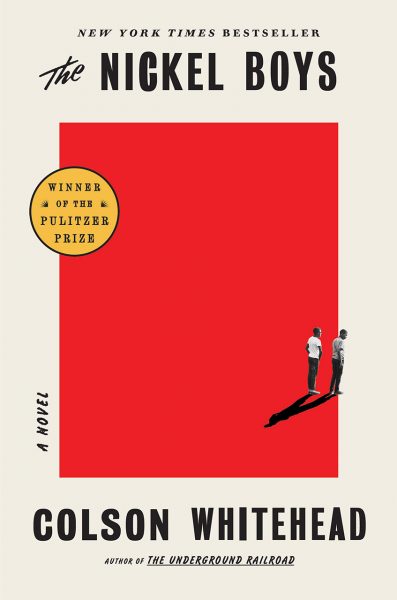
“The Nickel Boys” by Colson Whitehead
The arrival of this latest novel from “The Underground Railroad” writer caused Time Magazine to enshrine him in July as “America’s Storyteller.” Seventeen years earlier, Whitehead picked up an Anisfield-Wolf Book Award for “John Henry Days.” The novelist returns to U.S. history for “The Nickel Boys.” It is based on a Florida reform school, the Dozier School for Boys, that warped the lives of thousands of children for 111 years. In the fictional treatment, Elwood Curtis is derailed from his path toward college and pitched into a facility where “all the violent offenders . . . were on the staff.” Turner is wiser to the rigged game and eats soap when forced labor becomes unbearable. Whitehead doesn’t dwell in horror, instead, pervasive racism soaks the novel’s ground, so there is nowhere to stand for either boy. In prose as clear as water, Whitehead traps his reader. Undergirding it all are the unmarked graves of close to 100 Dozier boys unearthed in 2014. Finally made unforgettable.
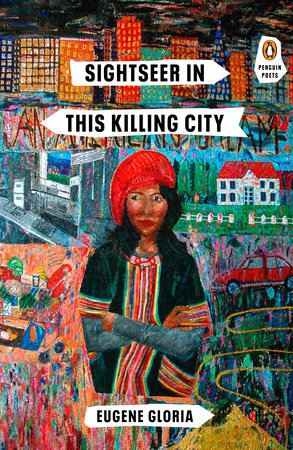
“Sightseer in This Killing City” by Eugene Gloria
This is Gloria’s first book since the Manila-born Midwestern poet won his Anisfield-Wolf prize for “My Favorite Warlord” in 2013. Known for taking months, and sometimes years, on a single poem, Gloria joins Shane McCrae in pondering the contemporary American moment. Deeply attuned to heritage and displacement, the new poems continue Gloria’s preoccupation with the arrivals and departures of ordinary people. The title poem reverberates from a Dallas hospital. The other 47 in this collection are concise, erudite and plain-spoken in language enriched by Gloria’s reading across continents and centuries. He samples Stevie Wonder and Shakespeare; Baudelaire and Al Green. In “Implicit Body,” the speaker commands “Call me Mr. Gone/who’s done made/some other plans./All that remains is nostalgia/and this aching torso of blue.”

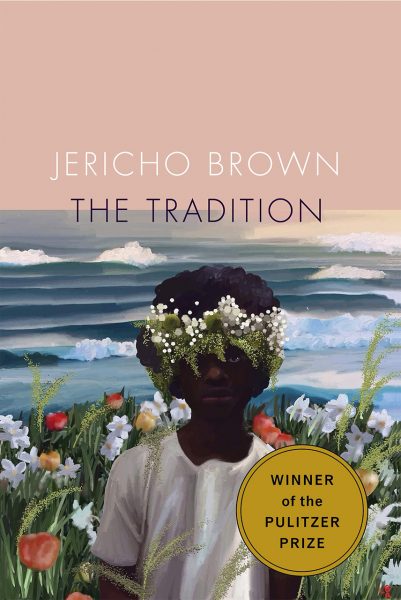
“The Tradition” by Jericho Brown
Named to several best-of-the-year lists, this stunning collection grapples with the black body, especially the queer black body, in poems that combine bright music and “everything cut down.” Brown follows his “The New Testament,” which won an Anisfield-Wolf prize, with a meditation over 51 poems on masculinity, desire, violence and tradition: in poetry, in racism, even in the impulse to plant gardens. In the musical, compressed lines of “Dark,” Brown writes “I’m sick/of your hurting. I see that/you’re blue. You may be ugly/but that ain’t new.” The poet comes up with a new form, “the duplex,” which he designed to gut the sonnet. “The Tradition” is suffused with prickling self-knowledge, of a sense of this poet coming into his own. He addresses his own persona in “The Rabbits”: “I am tired/Of claiming beauty where/There is only truth.”
With the William G. Mather steamship providing a nautical backdrop, poet Tracy K. Smith brought her work to the shores of Northeast Ohio as part of the 2019 Cleveland Book Week festivities.
The 2019 Anisfield-Wolf winner for poetry opened her reading with a few selections from “Wade in the Water,” her 2018 award-winning collection. She began “The Everlasting Self,” a short meditative poem on identity and legacy, before segueing into “Declaration,” an erasure poem taken directly from the Declaration of Independence. “Please speak to me,” she recalled asking of the document. “Please show me something I haven’t already seen.”
Later in the reading, she explained the significance of the title poem, which came to her during a visit to a small Georgia town. A woman, part of the Geechee Gullah Ring Shouters, approached Smith and greeted her with an “I love you.”
“That felt like the most beautiful gift that someone could chose to give,” Smith said. ‘I see you. You are meaningful. I don’t know you but yet I love you.'”
During her just-finished two terms as U.S. Poet Laureate, she strove to bring poetry to rural communities, appearing in Alaska, South Dakota and Maine, popping up in rehabilitation centers, libraries, prisons and community gathering spots.
“I wanted to get off the beaten path but I also felt like this is a moment in America where all we’re inundated with is ideas of division,” Smith told the crowd on the harbor. “I knew that poetry could help get past that narrative. Because poems make you stop and pay really close attention. ‘Someone else is speaking here’ and it feels like it matters…And it gave me so much hope about America at a time when very little else did.”
Currently, Smith is the host of The Slowdown, a bite-size poetry podcast that delivers five-minute episodes every weekday. She is also a professor of creative writing at Princeton University.
Watch her full remarks below and make plans to join us in 2020 for Cleveland Book Week.

For the past decade, Northeast Ohioans gathered for the Anisfield-Wolf Book Awards ceremonies have celebrated a young poet alongside the winning authors. This year Logan Greer, 10, a fifth grader at Campus International School, set the tone with her poem, “City of Growing Up.” She wrote these lines in the spring of 2019 during a class exercise with teaching artist Nicole Robinson. Logan took her inspiration from “Ash” by Tracy K. Smith. Campus International is part of the Cleveland Metropolitan School District.
City of Growing Up
City of pleasant party people
City with gangs
City with learning
City before cruelness before being anxious
City that believes in God
City like a flower growing in the ground
City trotting around Lake Erie
City paralyzed from moving
City with depression
City examining the streets
City of a long road that I walk down
City with my family
City of angry people fighting to live
City of the taste of my grandma’s macaroni
A city of my life
Watch her recite it below and leave a comment for Logan. We’ll make sure she sees it.
Poet Sonia Sanchez launched Cleveland Book Week 2019 with a rousing, reflective performance at Kent State University, as part of the 50th anniversary May 4 commemoration events.
Sanchez began the evening with “A Poem of Praise,” accompanied by a reflection on Kent State students who were killed and wounded by the National Guard during the campus demonstration in 1970, chanting each by name.
As one of the architects of the Black Arts Movement, Sanchez, 85, has written more than a dozen poetry books, several plays and essays, experimenting with musicality in the written word. She’s also spent more than 40 years in the classroom, a pioneer of black studies and women’s studies on college campuses. For these contributions, she’ll be honored on Thursday night with the 2019 Anisfield-Wolf lifetime achievement prize.
Throughout the evening, Sanchez anchored her talk with the theme of activism, urging the students to be politically active, to push the conversation forward around income inequality and climate change. “I can’t give you any easy answers but you’ve got to face this world with a very brave face, with a face that says, ‘I want to live,'” she said. “The only way to do that is to struggle and fight. Not wars, but fight against the greed in this country.”
Watch her full remarks below and make plans to join us for the remaining Cleveland Book Week events. All events are open to the public. See the full schedule and make reservations here.
The 2019 showcase, which ran from Sept. 18-28, celebrated present and past Anisfield-Wolf Book Award winners, while offering a number of free literary events for the community.
An Evening with Sonia Sanchez
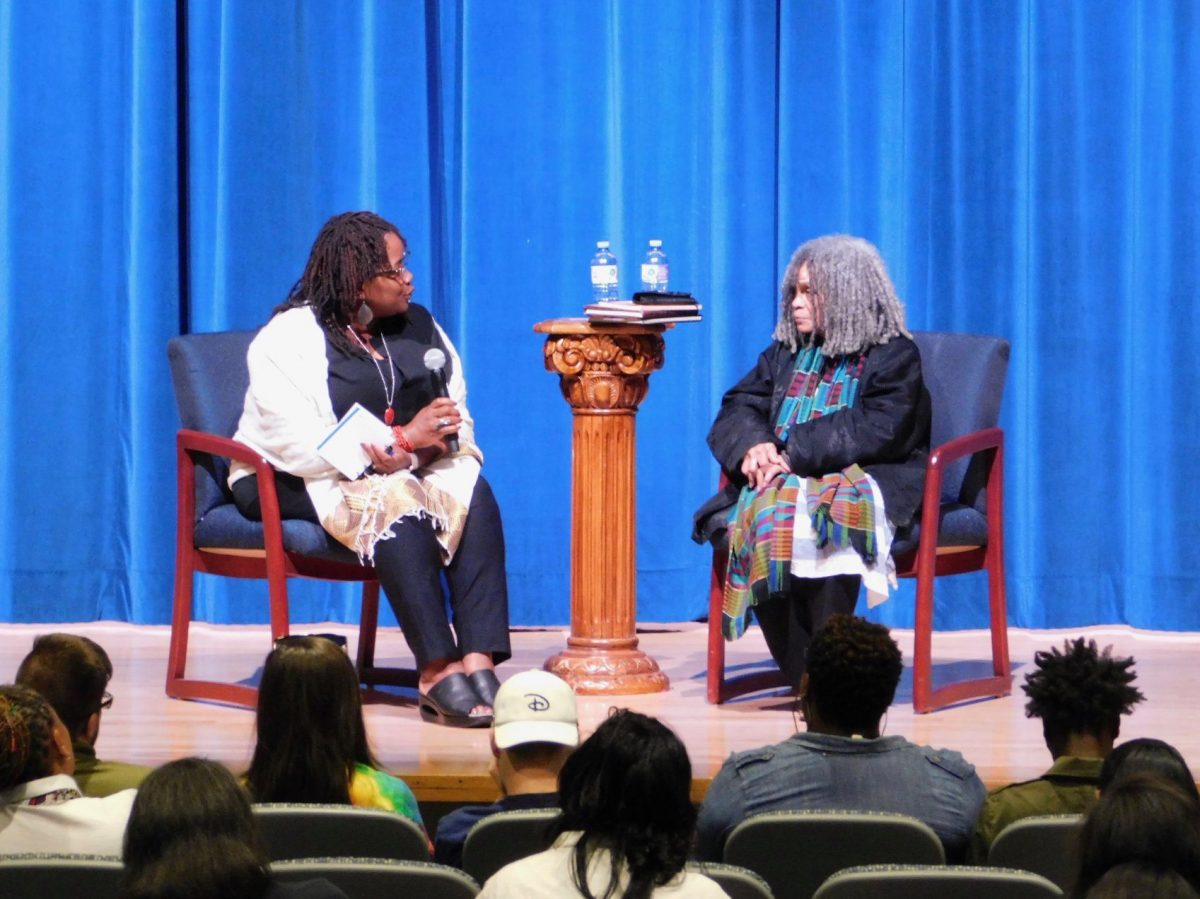
Poet, activist and 2019 Anisfield-Wolf Book Awards Lifetime Achievement winner Sonia Sanchez spoke on the campus of Kent State University for an event aligning her groundbreaking civil rights and peace work with the university’s year-long examination of the 50th anniversary of the May 4, 1970 shooting of students by the Ohio National Guard.
A Celebration of Russell Atkins
Cleveland State University Poetry Center and the national members of the literary community organized the launch party of “World’d Too Much,” a new book of Russell Atkins poems. Now 93, Atkins — the master of modernist poetry and lifelong Clevelander — was recognized with a performance of his music and words at Karamu House, where he ran a poetry workshop for many years.
Cleveland Public Library presents Writers & Readers: Michael “Killer Mike” Render & Soledad O’Brien
Broadcast journalist Soledad O’Brien and Grammy Award-winning rapper and political commentator Michael “Killer Mike” Render spoke about the books that shaped their lives to celebrate Cleveland Public Library’s 150th anniversary and kick off its Writers & Readers series.
On the Water with Tracy K. Smith
William G. Mather on North Coast Harbor
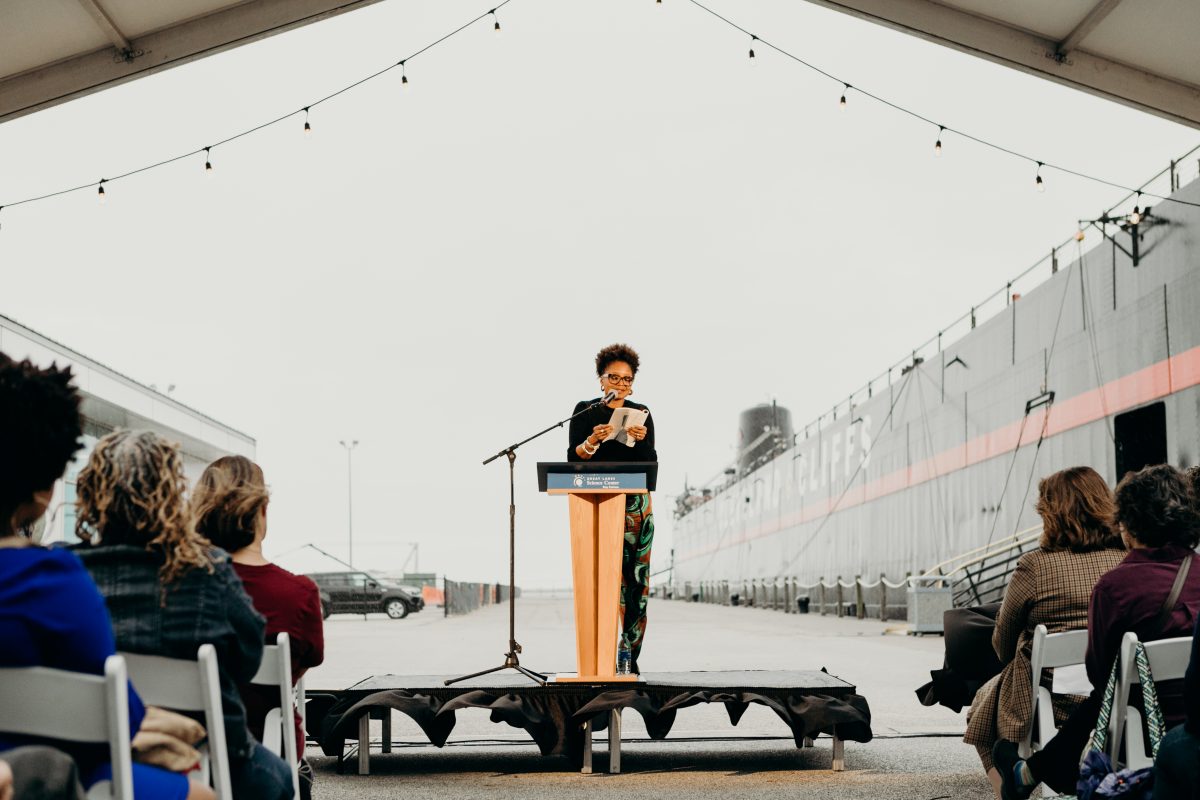
Attendees met Tracy K. Smith, the 2017-2019 Poet Laureate of the United States, at the confluence of Lake Erie and the Cuyahoga River to hear her poems from “Wade in the Water,” a 2019 Anisfield-Wolf winner. Hosted by the Great Lakes Science Center, Brews + Prose and Cleveland Book Week, the reading and book signing shimmered with the North Coast Harbor and the William G. Mather Steamship as backdrops.
Writers Center Stage: Jane Mayer & Frank Rich
The William N. Skirball Writers Center Stage Series hosted a conversation between trailblazing investigative journalist Jane Mayer, Chief Washington Correspondent for the New Yorker, and award-winning New York Times journalist Frank Rich as a part of the Cleveland Book Week 2019.
84th Annual Anisfield-Wolf Book Awards
The Anisfield-Wolf Book Awards recognize books that have made important contributions to our understanding of racism and human diversity. It remains the only American literary prize focusing on works that address racism and equity. For more than 80 years, the distinguished books earning the Anisfield-Wolf prizes have opened and challenged our minds.
Project 400: Our Lived Experience Conference, with Henry Louis Gates Jr.
Project 400 is a nine-month initiative commmemorating the arrival of the first Africans in North America 400 years ago. The conference opened with professor, scholar and Anisfield-Wolf Book Awards jury chair Dr. Henry Louis Gates Jr. speaking on his new book “Stony the Road” and the history and dismantlement of Reconstruction.
Fugitive Slaves and the Struggle for America’s Soul: Andrew Delbanco
The City Club of Cleveland welcomed Andrew Delbanco, winner of the 2019 Anisfield-Wolf Book Award in nonfiction, as he explored how the battle over fugitive slaves in the pre-Civil War era affects America’s present day and its persistent struggles with race, immigration and inequality. Delbanco argues in “The War Before the War” that the disputes over whether to harbor or return fugitive slaves pushed the nation into Civil War.
An Evening with Tommy Orange
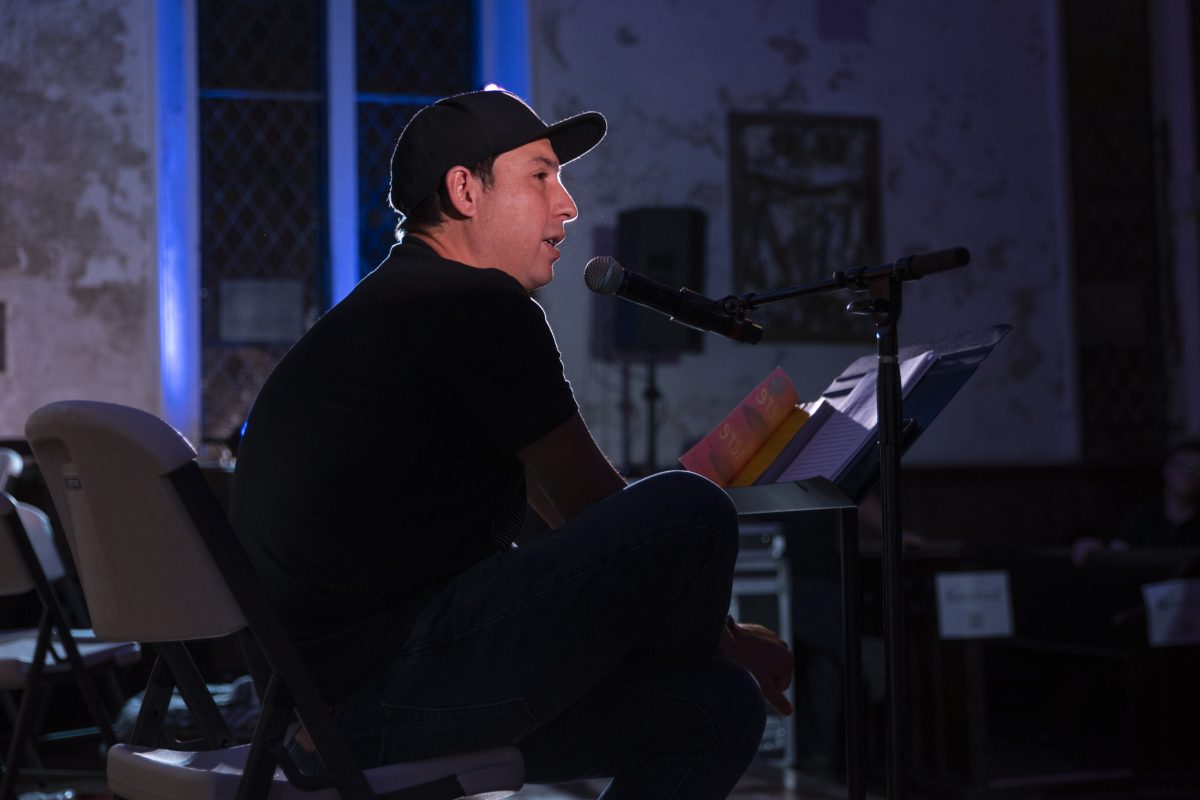
The Lake Erie Native American Council, St. John Episcopal Church and Cleveland Book Week honored Tommy Orange with dancing, song and literature in the sanctuary of this historic shrine. Orange is the recipient of the 2019 Anisfield-Wolf Book Award for fiction with his debut novel, “There There.” St. John’s, which opened in 1838, is the oldest consecrated building in Cuyahoga County. It was a stop on the Underground Railroad and the home, briefly, of the American Indian Movement and Russell Means.
Great Lakes African American Writers Conference
Attendees gathered at the beautiful East Cleveland Public Library, where literary creatives from throughout the Great Lakes region learned from and networked with influential publishing industry professionals from hubs including New York, Chicago and Los Angeles.
For a few days in June, I sat down in an old building at Case Western Reserve University among 20 scholars, activists and artists to unpack the new class of books honored by the Anisfield-Wolf Book Awards.
I spoke of the immigrant experience, of entering this country as an adult in 1998, with only some knowledge of its complex history. Back in high school in New Delhi, I did study U.S. history, but barely remembered little more than the rolling prairies and the Boston Tea Party. The America I imagined was largely the one I saw on movie screens and television shows. I was largely ignorant of the harsh treatment of Native Americans, whom I had glimpsed in cowboy movies, and had barely a grasp on the long, annihilating history of slavery.
The titles in the Anisfield-Wolf Book Awards canon can help with that.
This year’s fiction winner, “There There,” explores the contemporary Native American experience in Oakland, Calif., telling a story of pride, confusion and shame. I could see reflections of my search as an immigrant for identity formation in Tommy Orange’s novel about the indigenous American search for identity reclamation.
The nonfiction recipient, “The War Before the War,” ponders the role of fugitive slaves in the build up to the Civil War. Our group’s discussions about the legacy of slavery and its link to today’s wealth disparities helped me gain new perspectives into the ongoing reality of race and injustice, from enslavement to mass incarceration.
When my family first settled in the suburbs of Cleveland in a mostly white neighborhood, it was all very different and new. I perceived, but could not fathom, the gulf between the suburbs and the core city, and the unequal treatment of minorities and poor communities.
But like most immigrants, I was wrapped up for many years in our family’s survival, in the challenge of finding jobs, and unraveling the mysteries of college admission. My first education about race and diversity arrived when I became a graduate assistant in the Office of Diversity & Multicultural Affairs at Cleveland State University. Working there exposed me to the turmoil of racism and economic inequalities in this country through speakers and campus events.
The summer seminar allowed me to pick up the thread of this learning. Like other Americans, I can fall into the trap of stereotyping people even as I am stereotyped myself. I was grateful for the chance to learn more about the deep and cruel disparities in our society, and some ideas about what an individual might do to combat them.
Our group talked of leveraging our collective experience and expertise towards improving our region. As an educator and journalist, I can take the discussions into the classroom and my communities.
Decoding the themes and writings of the four Anisfield-Wolf award-winners this year challenged me to think differently and explore how I could take these messages into the world outside. I encourage you to join me and read them.
Cheryl D’Mello is editor of The Lotus, the Asian Indian nonprofit community newspaper in Cleveland, and a lecturer at Cuyahoga Community College. This essay arose from her participation in the Cleveland Humanities Collaborative’s second annual Anisfield-Wolf faculty seminar, “Reading Social Justice: The Anisfield-Wolf Book Awards.” The Andrew W. Mellon Foundation funds the CHC.



